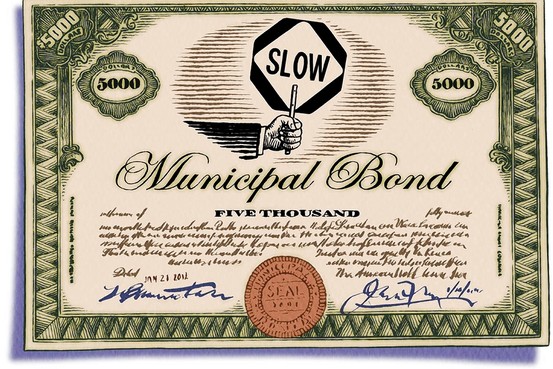20 Examples of Municipal Bonds
Municipal bonds, often referred to as “munis”, play a pivotal role in financing local governments and municipalities across the United States. These bonds are an investment opportunity offering tax advantages, as they’re often exempt from federal income tax, and sometimes state and local taxes. Let’s delve into twenty examples of municipal bonds that represent a broad range of projects and initiatives funded by these instruments.

20 Examples of Municipal Bonds
General Obligation Bonds
General obligation bonds are issued by municipalities and are backed by their full faith and credit, meaning they are secured by the taxing power of the issuing municipality.
1. New York City General Obligation Bonds: Issued to finance the city’s general operations and public works projects.
2. Chicago Municipal School Bonds: Facilitates the construction and renovation of public schools in Chicago
3. Dallas Independent School District General Obligation Bonds: Helps fund school infrastructure projects.
Revenue Bonds
Revenue bonds are another type of municipal bond, where the repayment primarily comes from a specific revenue source associated with the purpose of the bond.
4. San Francisco Airport Revenue Bonds: Issued to fund the expansion and modernization of facilities at the San Francisco Airport.
5. Los Angeles Department of Water and Power Revenue Bonds: Used for maintenance and upgrades to utilities infrastructure.
6. Massachusetts Turnpike Authority Revenue Bonds: Supports roadway improvements and expansions.
Tax Increment Examples of Municipal Bonds
These bonds finance redevelopment projects. The principal and interest are paid from the increase in tax revenues generated by the projects.
7. Denver Urban Renewal Authority Tax Increment Bonds: Fund urban development projects aiming to revitalize specific areas of Denver.
8. Cincinnati Center City Development Corp Tax Increment Bonds: Finance urban redevelopment in downtown Cincinnati.
9. San Diego Redevelopment Agency Tax Increment Bonds: Support revitalization initiatives in San Diego.
Municipal Notes
Municipal notes are short-term debt instruments issued for temporary financing, typically repaid from tax revenues or other short-term revenues.
10. New Jersey Tax and Revenue Anticipation Notes: Short-term borrowing for general operating expenses before tax revenues are collected.
Special Assessment Bonds
These bonds are issued to finance specific local projects such as street or sewer improvements and are repaid by the property owners who directly benefit from the projects.
11. Miami Special Assessment Bonds: Used for neighborhood improvements and other local projects.
12. Houston Street Improvement Bonds: Finance specific street improvements in Houston.
Other Notable Examples of Municipal Bonds
13. University of California Revenue Bonds: Supports various projects at University of California campuses.
14. New York Metropolitan Transportation Authority Revenue Bonds: Finance improvements in the New York City subway system.
15. Miami-Dade County Seaport Revenue Bonds: Fund improvements to the port facilities in Miami.
16. Texas Veterans’ Land Board General Obligation Bonds: Supports veterans’ home loans, land loans, and home improvement loans in Texas.
17. Washington Health Care Facilities Authority Revenue Bonds: Funds improvements to public healthcare facilities in Washington.
18. California Housing Finance Agency Revenue Bonds: Provides affordable housing opportunities in California.
19. Illinois Toll Highway Authority Revenue Bonds: Funds the maintenance and expansion of the state’s toll highway system.
20. New Hampshire Municipal Bond Bank Bonds: Assists local governments in New Hampshire in accessing low-cost financing.
People Also Ask
What are the risks involved in investing in municipal bonds?
Like any investment, municipal bonds carry risk. They can be subject to interest rate, inflation, and credit risk. Consult with a financial advisor to understand these risks.
How are municipal bonds taxed?
Municipal bonds are often exempt from federal income tax, and sometimes from state and local taxes as well. However, certain types of municipal bonds may be subject to tax.
What’s the difference between general obligation and revenue bonds?
General obligation bonds are secured by the issuer’s taxing power, while revenue bonds are repaid from a specific revenue source related to the bond’s purpose.
Conclusion
Municipal bonds are a fascinating financial instrument that not only provides an investment avenue but also plays a crucial role in supporting infrastructure development, public projects, and local services. From education to healthcare, urban development to transportation, these 20 examples represent the diversity and reach of municipal bonds.
See also: 10 Examples of Mortgage-Backed Securities
